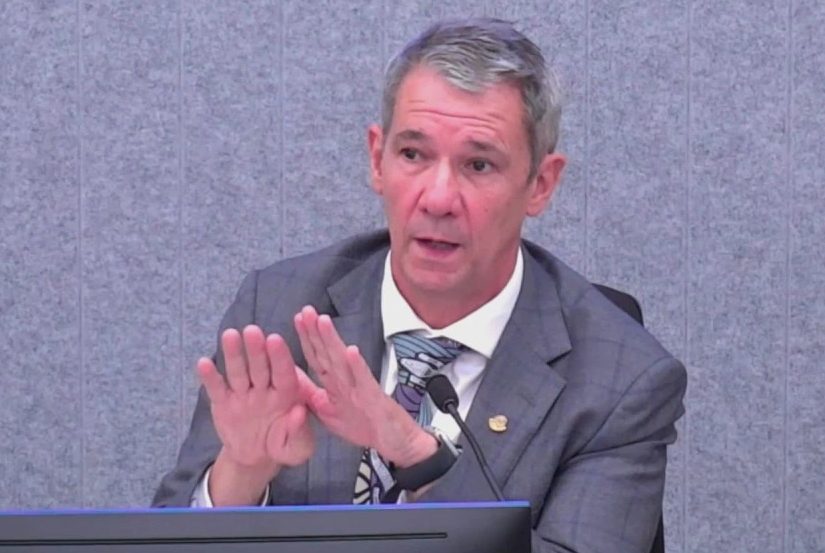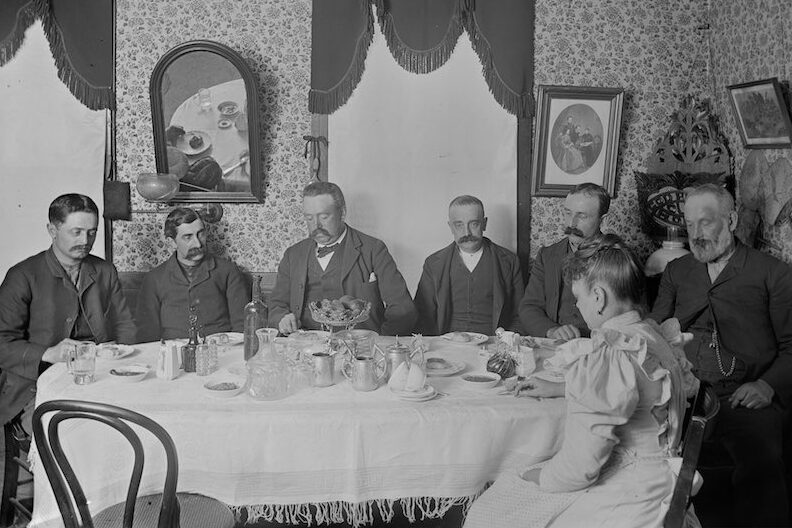
Beyond the daily news coverage, “CityNews” legal commentator and former barrister HUGH SELBY is commentating regularly on the Sofronoff Inquiry’s public hearings, focusing upon the advocacy and witness performances.
The Board of Inquiry, led by Commissioner Walter Sofronoff KC, a former president of the Queensland Court of Appeal, was established by the ACT government in December to examine how police, prosecutors and a victim support service handled allegations made by Brittany Higgins against her former colleague Bruce Lehrmann.
VICTOR Hugo remarked that “adversity makes men, and prosperity makes monsters”. I’m sure that what I am about to do to his remark was not in his mind, but I hope that both his remark and how I use it will stay in yours.

Mid-afternoon, Wednesday, May 10, Commissioner Sofronoff delivered a memorable, eloquent, measuredly passionate, short address about the freedoms and obligations of Australian media.
Any reader interested in the meeting of justice and media should experience not only what he said, but how he said it, by going to cjsinquiry.act.gov.au/public-hearings/livestream Once there, go to the livestream record for Wednesday on the right of the screen. Then go to the bottom and move the cursor on the red line to 1518 which is when he starts. Watch and listen for the 10 minutes to 1528.
It was the monstrous behaviour of some media seeking their prosperity that put at risk the continued “open access” by you and me to the inquiry. It was this adversity with which Mr Sofronoff had to deal. How he dealt with it is a lesson to the rest of us. He speaks so well that to paraphrase what he said would be a disservice.
Turning now to Wednesday’s questioning. After three days, the underlying sentiments and beliefs of the DPP, Mr Shane Drumgold SC, are becoming clearer. There’s a quixotic element. On some topics, such as his critique of the police approach to a second recorded interview with Ms Higgins, his position about shortcomings in the police questioning was clear and logical. That’s not to say that everyone would agree with his view.
The word “prism” has had a lot of use in the DPP’s evidence as in, “looked at through this prism”. His whole-hearted commitment to the complainant at the centre of this saga, and to complainants generally, is a driving force in how he approaches cases and makes decisions.
What one sees through a prism depends upon which of its faces you choose. The choice of a complainant’s assumed bona fides as the face of the decision prism used by the DPP seems to have bent his application of principles that are otherwise well understood by him.
He said with obvious sincerity: “It would normally warm my heart to have defence talk to police”, but a lot has been said, and a lot more will be said, about how he persuaded himself that the contact between the police and other witnesses with the defence in this case was improper.
It is a basic proposition that both sides have access to witnesses (save for instances where personal safety is an issue). This is referred to as “there is no property in a witness”. The DPP knows this principle. He endorses it. But in this case what he thought and then wrote departed from it. He seems to be blind to the incongruity.
Resisted grasping Longbottom’s saving branch
So far he has resisted every opportunity, and there have been a number, given by Erin Longbottom, counsel assisting (CA) to grasp the saving branch of “my objectivity was lessened by all the never ending activity – media, political, police – surrounding this cause celebre“.
Late in the day the content of his letter of serious allegations to the ACT Chief Police Officer in 2022 was raised by the CA. It is trite, but necessary, to say that those who allege must prove.
It is perplexing that the DPP chose to express his concerns as though they were well-supported allegations. It is perplexing because by dint of experience he knows what is evidence and what is supposition or speculation.
In his answers the DPP was sincere and authentic in his explanation of his “beliefs” that entailed the letter. When pressed, on this and other issues, he was unable to provide an objective, factually provable basis for those beliefs. The Commissioner aptly summed up the position by a remark along the lines of, “there were objective facts upon which you offered a subjective interpretation”.
An unexpected twist in Wednesday’s evidence was the DPP’s confusion about something known as the “puttage rule”, “the rule of fairness”, or the “rule in Browne and Dunn”. This quaint relic can’t be buried in Australia and has a different interpretation from one judicial officer to another. The nature of its absurdity is that so many advocates in cross examination will say: “ I put it to you that such and such happened. Is that correct?” The “put” of “puttage” is the second word. What does it mean? The average 2023 Aussie, including me, has no idea. This has led many advocates to say instead: “I suggest to you that such and such happened. Is that correct?”
This is no better. A “suggestion” is just that. It is not a question. So many good barristers use it and wonder why they get bad answers. The CA in this inquiry uses the phrase over and over.
Career prosecutors, such as the DPP, often have limited experience of cross-examination because the Defence calls no evidence. There is no one to cross-examine.
The price of that inexperience was on show because the DPP was unable to appreciate that those bad “put” or “suggest” questions are inviting a “yes” or “no” answer and only those alternatives.
They are what advocates call “closed” questions. The questions should have been phrased to invite a content rich response from the witness: “What can you tell us about why you asked for the earlier trial transcript before you gave your evidence?” The answer would then guide the next similarly “open” question.
It should be of concern that our DPP, after 20 years of hard work, was confused about these concepts. But it’s not of concern because, sadly, there is no reward for striving for good advocacy in Australia. Thems that have it use it, thems that don’t don’t. Both types get to be judges.
Author’s notes on his inquiry commentary
A well-run public inquiry is like an iceberg: what you see at the public hearing is just the tip of a much larger “work in progress”.
For some months the inquiry staff have been interviewing people and collecting records. All that information is then available to the inquiry advocates (counsel assisting), ammunition to fire or soothing lotion to apply when asking a witness questions.
Woe betide the witness who, waiting for the questions, sees only the counsel assisting. This is not a one-on-one contest: counsel assisting is just the public face of concerted team work.
In recent public inquiries into, for example, the suicide of our Defence Forces’ veterans, or victims of institutionally based sexual predators, the “soothing” element has been a focus with those witnesses who were victims or victim’s relatives.
But among those witnesses who might have strayed and who might be publicly exposed, “hope” springs eternal until it’s too late even to save some dignity. Even when they know what is in the advocate’s gun they hope for a misfire. One must first deceive oneself before deceiving others.
For any witness there is the added problem that the commissioner can ask as many questions as they like. This does not happen in court proceedings where the judge is seen but little heard.
At any moment the commissioner may intervene in the to and fro between witness and advocate. Here one can see how the public interest is served by appointing as commissioner someone who was a skilled advocate earlier in their career.
My bad dream, even in retirement, is being a witness at a public inquiry who is being led gently or pushed ruthlessly by counsel assisting, and then suddenly being engaged by a commissioner who knows how to cross-examine.
Cross-examination is an art, reflecting at least two of the following: innate temperament, experience, and good mentoring. Above all else it is manipulative. It suggests the inevitable conclusion to the listener without stating it. The listener takes themself to the finish line. As a witness, to fight on two fronts against well provisioned, skilled opponents is a nightmare.
All that being noted we must keep in mind that the commissioner opened the public hearings with this significant comment: Nobody should be harmed unnecessarily.
–HUGH SELBY
Who can be trusted?
In a world of spin and confusion, there’s never been a more important time to support independent journalism in Canberra.
If you trust our work online and want to enforce the power of independent voices, I invite you to make a small contribution.
Every dollar of support is invested back into our journalism to help keep citynews.com.au strong and free.
Thank you,
Ian Meikle, editor




![For graphic designer Tracy Hall, street art is like any artwork, her canvas has been swapped out for fences and plywood, her medium changing from watercolours to spray paint.
A Canberra resident for 13 years, Tracy has been a street and mural artist for the past five.
Her first exploration into grand-scale painting was at the Point Hut toilets in Banks five years ago. “They had just finished doing up the playground area for all the little kids and the words [of graffiti] that were coming up weren’t family friendly,” she says.
“So I ended up drawing this design and I got approval for the artwork.”
Many of Tracy’s time-consuming artworks are free, with thousands of her own dollars put into paint.
@traceofcolourdesigns
To read all about Tracy's fabulous street art, visit our website at citynews.com.au or tap the link in our bio! 🎨🖌
#canberranews #citynews #localstories #canberrastories #Citynews #localnews #canberra #incrediblewomen #journalism #canberracitynews #storiesthatmatter #canberralocals #artist #streetart #streetartist #StreetArtMagic](https://scontent.cdninstagram.com/v/t39.30808-6/490887207_1225841146218103_6160376948971514278_n.jpg?stp=dst-jpg_e35_tt6&_nc_cat=106&ccb=1-7&_nc_sid=18de74&_nc_ohc=MUiEmedc4VAQ7kNvwHTUMX_&_nc_oc=Adk-5HjcsfQwB-n_l8zetmr0YqMaupGjrl2gNVCZdsmkxwn-oqjBg_V7pLtGggCE43s&_nc_zt=23&_nc_ht=scontent.cdninstagram.com&edm=ANo9K5cEAAAA&_nc_gid=qRPX3lp45L9Hh2eo6h7oVw&oh=00_AfEI3UYAlAChERycdrbJ2K621gNM9R9jDSFf1v-C7KY_qQ&oe=68084054)




Leave a Reply